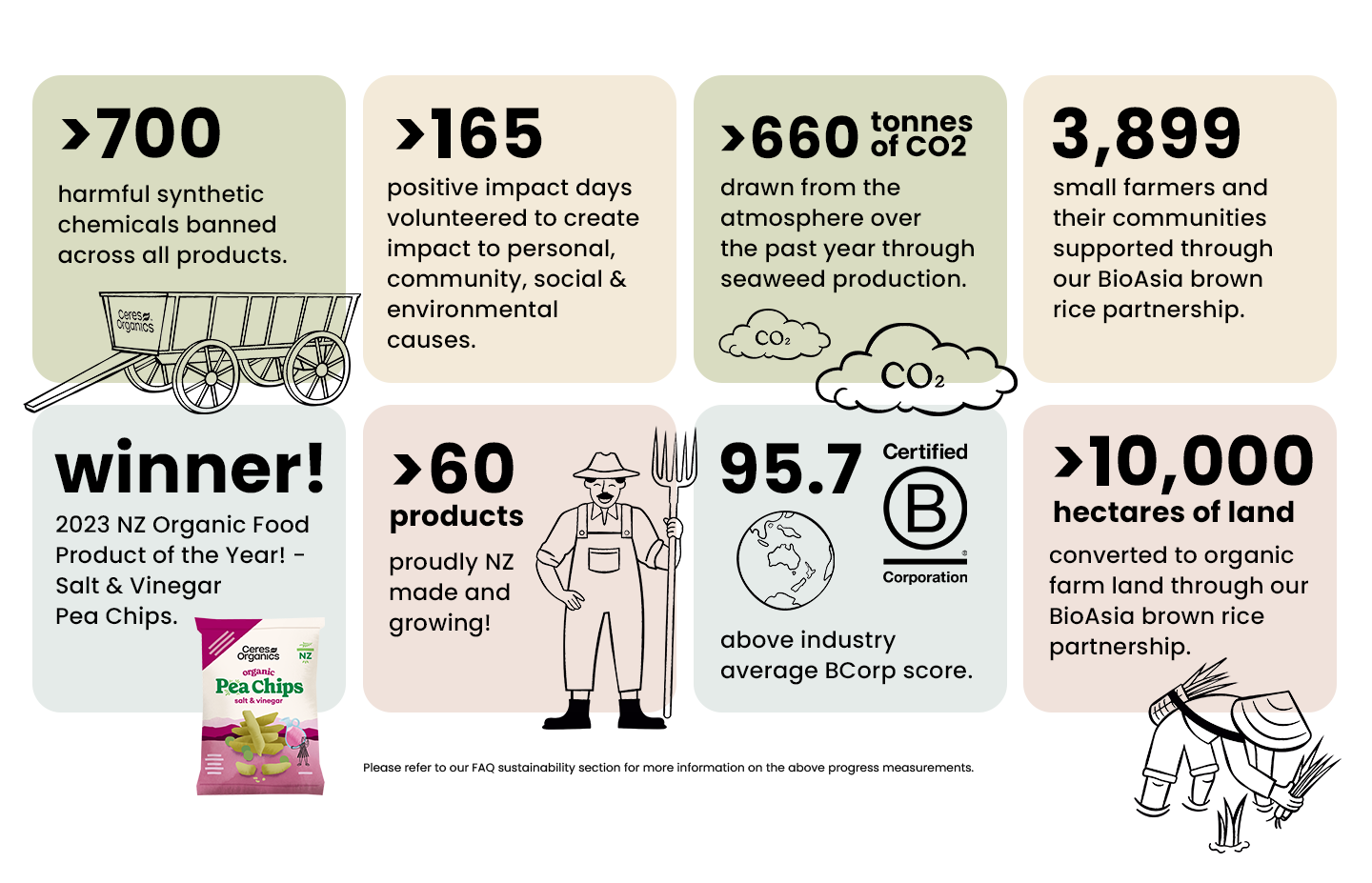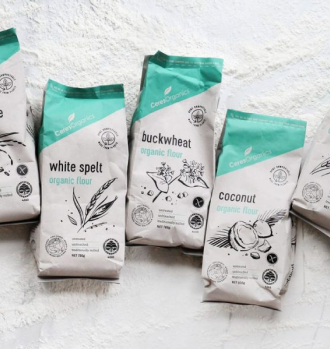
let's eat for change
sustainability principles

Our planet and people matter.
Every year human life uses more than 1.7 x what the world can naturally provide.
Climate change is one of the most pressing environmental issues of our time, with far reaching impacts on ecosystems, human health, and economies around the world.
As global temperatures continue to rise due to greenhouse gas emissions it is increasingly urgent to take action to reduce our carbon footprint.
Organic agriculture can play a significant role in tackling climate change. Conventional agriculture is one the biggest contributors to greenhouse gas emissions due to deforestation, a heavy reliance on fossil fuels in the production of chemical fertilisers and pesticides, encouraging mechanisation and fuel burning machinery, and the significant reduction of carbon being pulled into the soil instead of released into the atmosphere.
Every year human life uses more than 1.7 x what the world can naturally provide.
Climate change is one of the most pressing environmental issues of our time, with far reaching impacts on ecosystems, human health, and economies around the world.
As global temperatures continue to rise due to greenhouse gas emissions it is increasingly urgent to take action to reduce our carbon footprint.
Organic agriculture can play a significant role in tackling climate change. Conventional agriculture is one the biggest contributors to greenhouse gas emissions due to deforestation, a heavy reliance on fossil fuels in the production of chemical fertilisers and pesticides, encouraging mechanisation and fuel burning machinery, and the significant reduction of carbon being pulled into the soil instead of released into the atmosphere.

Organics is climate action!
While many of us feel helpless in the face of climate change, one opportunity we all have to help mitigate its impact is to support organic. Chemical agriculture is one of the biggest contributors to climate change, primarily through the release of carbon dioxide from the soil into the atmosphere.
Organic and other forms of agriculture, now commonly called regenerative agriculture, can reverse this and sequester or pull carbon back into the soil. This is because carbon is built up in the soil through enriching it with composted plant matter. The more carbon is stored in the soil and kept there, the more it becomes a natural carbon sink.
The soil is effectively “eating up” the carbon that would otherwise be released into the atmosphere, reversing the impact of climate change. If the world converted to organic farming this could go a long way towards helping solve the issue of carbon in our atmosphere.








